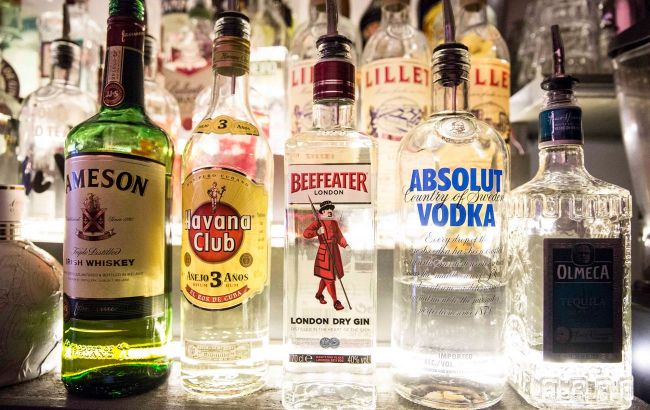Celebrity nutritionist names healthiest and most dangerous types of alcohol
 A doctor talks about the most dangerous alcohol (photo: Getty Images)
A doctor talks about the most dangerous alcohol (photo: Getty Images)
For those who don't want to give up drinking entirely, renowned nutritionist and gut health specialist Dr. Daryl Joffre has shared with New York Post his recommendations on the best and worst alcoholic beverages for overall health.
Which alcohol is more or less safe
Dr. Joffre said that gin is his favorite choice for healthy alcohol. He explained that juniper extract is the least acidic liquor with a pH of 7, making it closer to neutral than more acidic beverages such as wine or beer, which have an average pH of 3 to 4.
"This higher pH makes it gentler on the stomach and less likely to upset your body's acid-base balance," the expert said.
In addition, gin is sugar-free, "which is crucial for avoiding the harmful effects of blood sugar spikes and minimizing inflammation."
However, you shouldn't drink gin-based cocktails, as the additives are usually high in sugar and calories.
But what are the benefits of gin? Research shows that juniper berries, the cornerstone of gin, have anti-aging properties due to their high antioxidant content.
Not only do these antioxidants strengthen cells, but they also improve blood flow and help to eliminate toxins from the intestines, supporting overall digestive health. According to a celebrity nutritionist, the anti-inflammatory compounds in juniper berries are also known to fight oxidative stress and improve skin health.
Which alcohol is the worst
But there is bad news for beer lovers. According to the doctor, beer is the worst choice for drinking. This alcohol will leave you with a severe hangover in the morning.
"Beer combines high acidity, gluten, sugar, and fermentation byproducts, making it a disaster for digestion and metabolism," he said.
Beer is made from fermented grains such as barley, wheat, and corn. Many of these grains contain gluten, a source of inflammation, gastrointestinal irritation, and the dreaded leaky gut.
For those who are gluten-sensitive, beer will weaken the intestinal lining, causing systemic inflammation over time, which is associated with many chronic diseases. The beer brewing process also leaves behind congeners, chemical byproducts of fermentation, which exacerbate hangovers and increase liver strain.
Beer often contains preservatives and additives that further increase inflammation, disrupt gut health, and make you feel worse the next day.
This material is for informational purposes only and should not be used for medical diagnosis or self-treatment. Our goal is to provide readers with accurate information about symptoms, causes, and methods of detecting diseases. RBС-Ukraine is not responsible for any diagnoses that readers may make based on materials from the resource. We do not recommend self-treatment and advise consulting a doctor in case of any health concerns.

